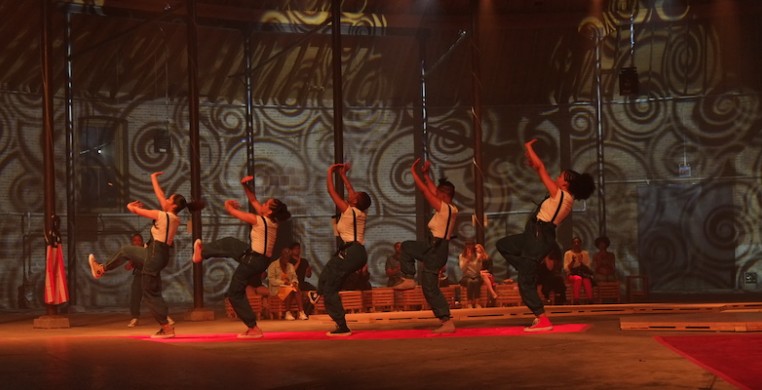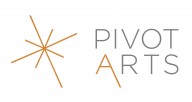Pivot Arts—an organization focused on creating and presenting bold, multidisciplinary performance in unusual spaces—keeps their mission at heart as they move forward with the 2020 Pivot Arts Festival online. The annual festival, this year titled “This Is How We Pivot,” exhibits programming artfully curated to exist on a virtual platform, both in how the works are created and documented and in how they address the circumstances of this time.
All festival events are free and take place June 5-30 on the Pivot Arts website, remaining online until the end of June.
When it came to the decision to move the festival online, festival director Julianne Ehre spoke in a phone interview about how Pivot Arts was intentional in translating the programming to a virtual platform and keeping in mind the audience experience.
“We focus on works that are highly entertaining to many people, and part of what we do is try to bring diverse people together through performance events,” said Ehre. “We aim to support work like that, and this year, works that could translate to a video context are doing so. We are also commissioning artists to create videos. So, we’re really avoiding a festival that is archival works.”
Scheduled performances that could not adapt to a virtual program have been postponed, including the Performing Arts Incubator Program, which gives artists time and space at Loyola University Chicago every year to develop works at various stages of completion.
Festival artist Red Clay Dance was originally presenting “Art of Resilience 2.0” a live, site-specific work that addressed the daily strength it takes to live in the United States as a black person. The piece was originally performed at the DuSable Museum of African American History, a location Red Clay artistic director and CEO Vershawn Sanders-Ward chose for its proximity to Chicago’s Black Belt. When the Pivot Arts Festival moved online, Red Clay created a virtual version of the work, called “Resilience Reimagined,” adapting the choreography from the live work to be filmed on phones and laptops in each dancer’s respective home. “Resilience Reimagined” expands upon the themes of the live work, while also calling to mind the vulnerability of one’s own home and what it means to allow an audience into a performer's personal space.
“This piece confronts the resilience that it requires to live and breathe in this country as a black person, and I think that the timing of this performance is not ironic,” said Sanders-Ward. “Most folks see their homes as a place of refuge—as a place to recharge—and again, I think that in a lot of situations for black and brown bodies, the home is still not a safe place. This piece speaks to our lived experiences.”
“Resilience Reimagined” goes live June 5 along with a link to video documentation of the original work at the DuSable.
Additional virtual works have been curated specifically for this festival, including a series of dance films from the In/Motion International Film Festival. And “The Rosina Project,” a hip-hop opera premiered at the 2019 Pivot Arts festival, is being revived this year as a virtual dance party, in collaboration with BraveSoul Movement. Ehre and Pivot Arts artistic associate Tanya Palmer have also co-curated a short film series, made up of original works by a variety of artists from Chicago and New York City. “(Un)Touched,” as the collection of films are called, explores the absence of touch and connection during the pandemic.
Exploring the prison waiting room as a third, criminalized space within a prison, choreographer and performer Anna Martine Whitehead will present an adapted version of “Force!, An Opera” for the for “(Un)Touched” series. What will eventually be a three-act opera tells the story of a group of femme, queer and trans women of color in a prison waiting room, the dramatic events that take place there and the relationships that unfold. The version to be premiered at the festival shows different clips of Whitehead dancing alone to a soundtrack of audio from the full-cast virtual rehearsals. This solo v. group juxtaposition comes from a learning process of making work during quarantine and the different artistic qualities that can develop with a different approach to rehearsal.
“I’ll be honest, it’s not what I want,” said Whitehead in a phone call. “Rehearsing movement is just too hard to do with our bodies being separated right now. But, more of our rehearsals are spent talking about the ideas of the work, using the rehearsal time to think through what this process is about. That feels really generative and useful.”
For Pivot Arts, the virtual festival acts as a launching-off point for similar artistic exploration: for artistic discourse via an online Live Talk series, for further funding opportunities for artists to create virtual or solo works and for potential experimentation with small, live-audience experiences.
“I think everyone who’s creating work right now is just trying to figure it out,” said Ehre. “I think that we have to keep hopeful that we will get to the other side of this, but until then, supporting what’s happening and supporting artists who are trying to be adaptive and still create work is important to keeping a sense of community around the performing arts.”
--
The Pivot Arts Festival “This Is How We Pivot” runs June 5-30 on the Pivot Arts website. To see the full line-up of free festival programming, click the event page below.


